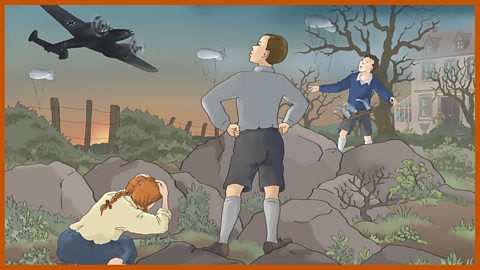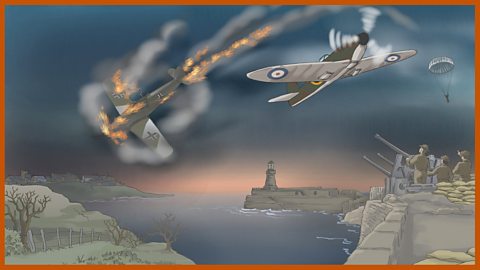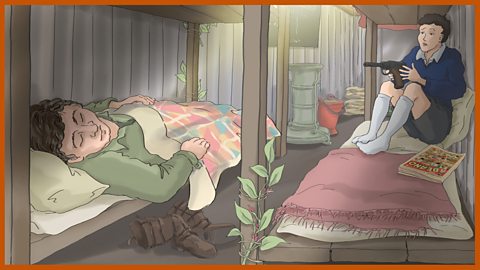Please note, āepisode segmentsā are temporarily unavailable.
5: Life at the fortress - synopsis
School has closed early for the Christmas holidays and the children are spending most of their time in Nickyās garden. They have extended āFortress Caparettoā and furnished it with items acquired from unsuspecting adults. Then, one night, a terrible event changes their childish game into something far more serious.

Ģż
Ģż
Curriculum notes
Literacy
Pupils will encounter language with which they may not be familiar in this text. For example, language relating to warfare, or language that may have dropped out of common usage or that is part of a regional dialect. The class could dedicate a section of a working wall to collecting examples of vocabulary used in the narrative with which they are unfamiliar. They can look up the definitions online or in a dictionary and this could provide a starting point to explore the morphology and etymology of certain words.
Consider screen adaptations of the book and compare and contrast different ways of presenting the same story.
Conduct an author study exploring Robert Westallās body of work and consider what experiences may have influenced his writing.
Geography
The children could study the location in which the book is set - Tynemouth - and compare and contrast this to their own locality.
The children could compare the location as it is today with how it was in the 1940s.
History
Allow time to explore the historical context of the story, and explore the comparison between the different motives of the nations who took part in World War Two. Supporting resources are available from the National Archives.
Explore the role of the Home Guard during World War Two. Supporting resources are available from The Imperial War Museum and the National Archives.
Consider how young people lived in the 1940s and how this compares to the lives of young people today.
The story provides a context for children to consider the effects of war on childrenās lives. Get them to consider why people might make particular choices and consider how they might respond themselves in a similar situation.
If the sequence is extended, the children could research the lives of British and German children during World War Two and how war affected them.
Consider the impact of rationing on peopleās lives during World War Two, and also the role of the Black Market.
Explore propaganda from the era - eg propaganda posters or short films. Encourage pupils to think about how we receive information today, and why the government at the time used posters as the main way of communicating information to people during the war years. Following this, pupils could design and make their own propaganda posters. These could then be added to the historical display that they have created. Supporting resources can be found here:
PHSE
Explore how schooling and education has changed since World War Two, including the use of corporal punishment.
Explore with the children the power of peer pressure, the impact of charismatic leaders on a population and how difficult it can be for people to challenge the status quo.
Explore the central themes of friendship, loyalty and courage.
Explore the stereotypes in the text and reflect on changing attitudes - eg towards women or SEND.
Citizenship and Rights
- Explore remembrance services and traditions that commemorate World War Two.
More from this series
4: Setting up camp. audio
The children start building a secret camp at the bottom of Nickyās garden to house the gun.

6: A home from home. audio
A German bomb destroys Nickyās house, killing everyone except Nicky. He takes refuge in the Fortress Caparetto.

7: A German friend. audio
As his plane is shot down over Garmouth, Sergeant Rudi Gerlath of the German Luftwaffe bails out and parachutes, unnoticed, to earth.
